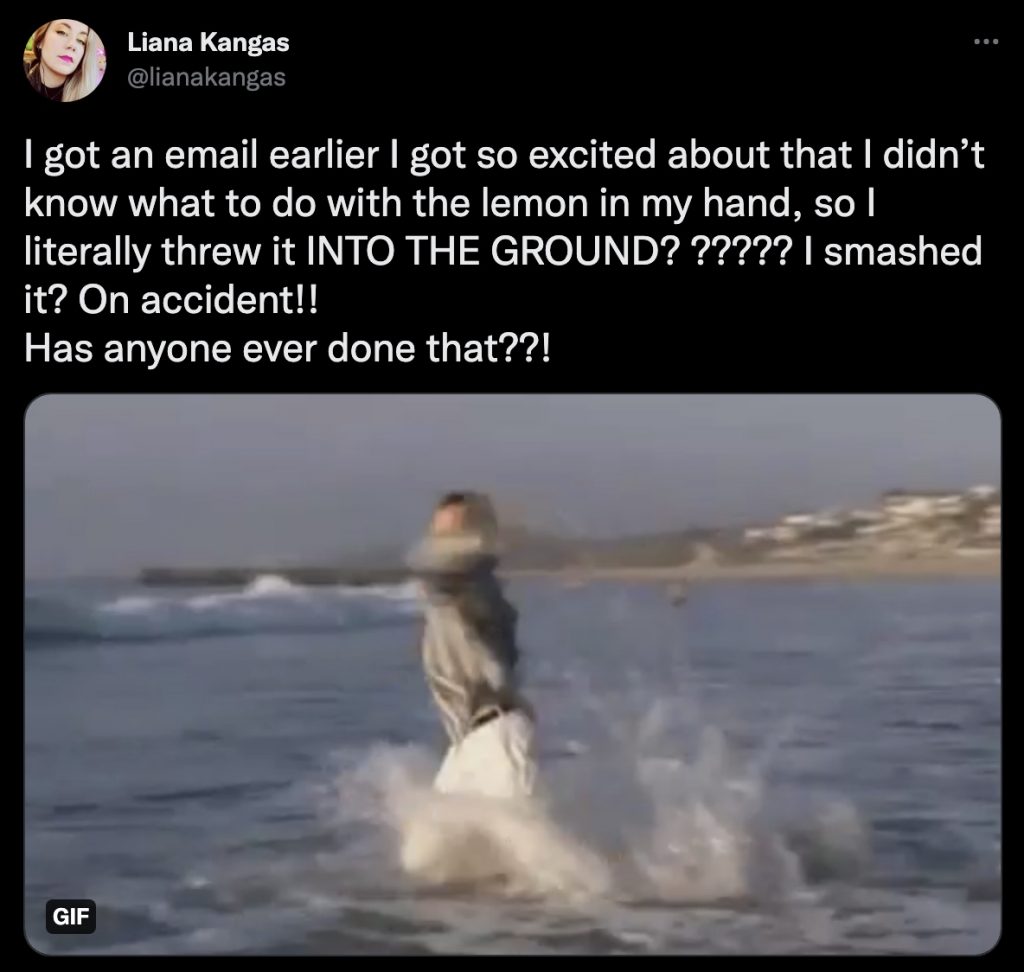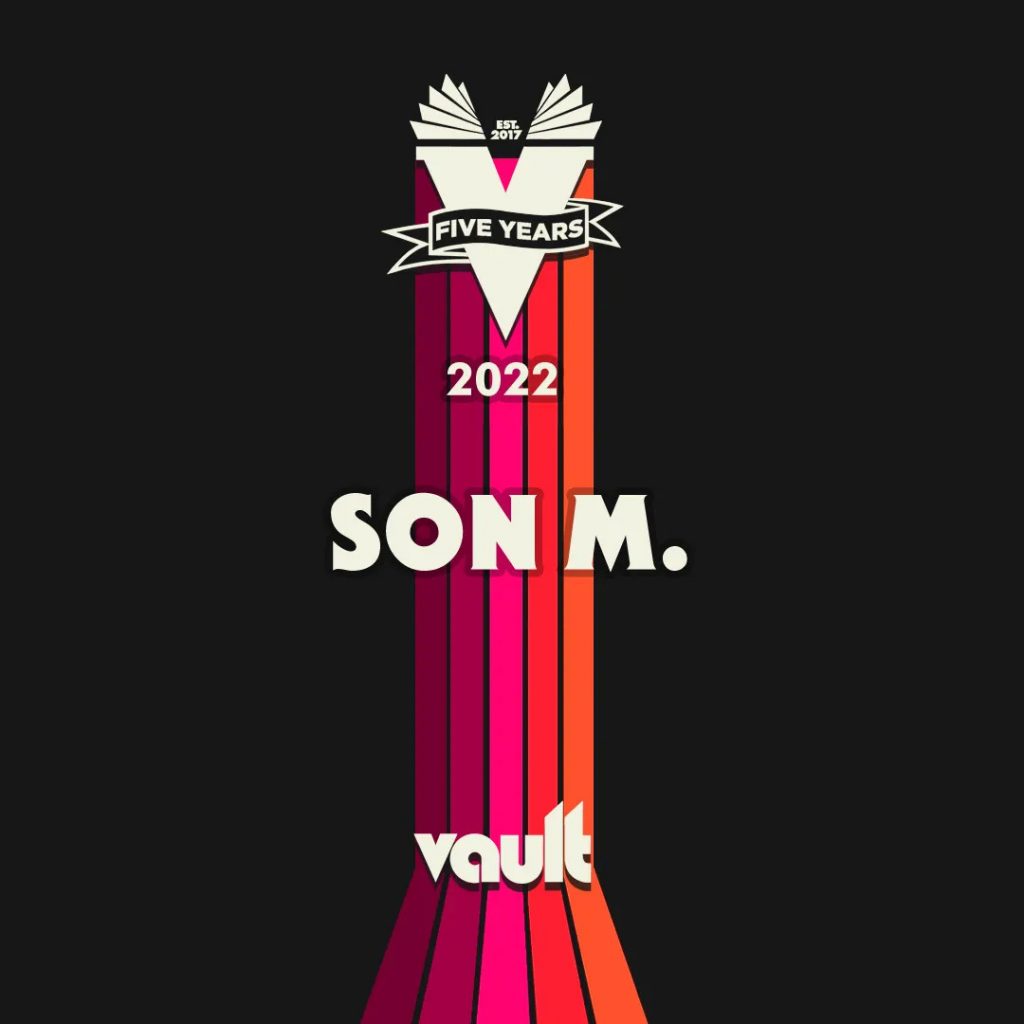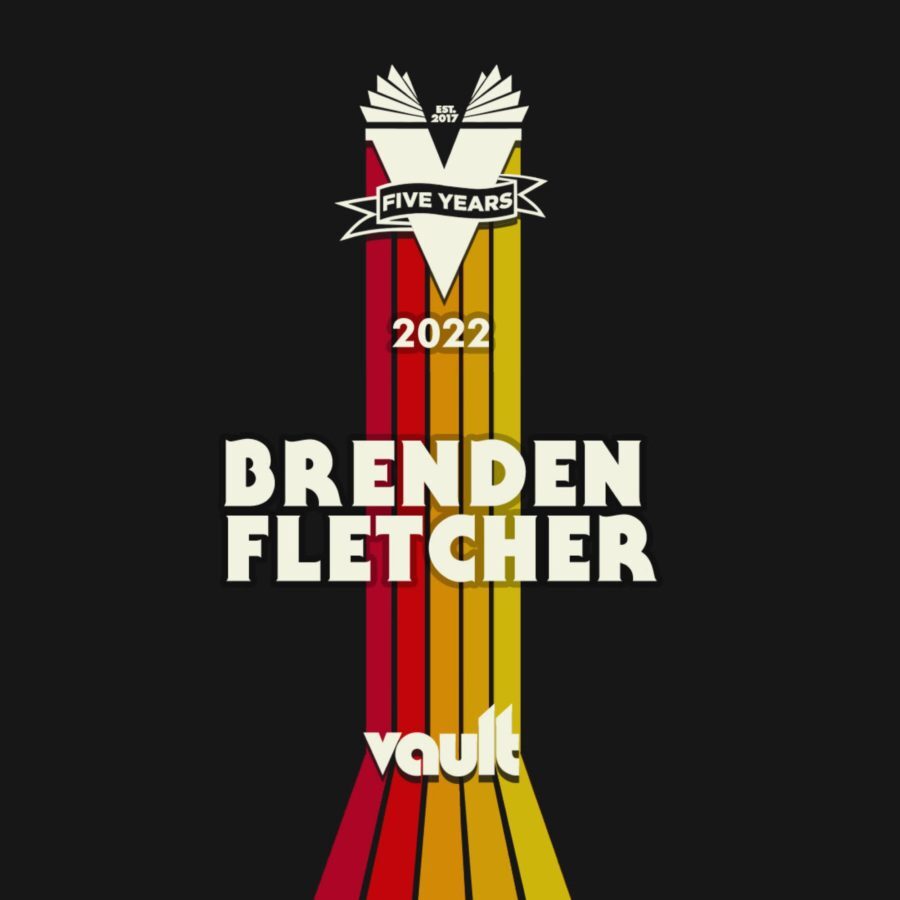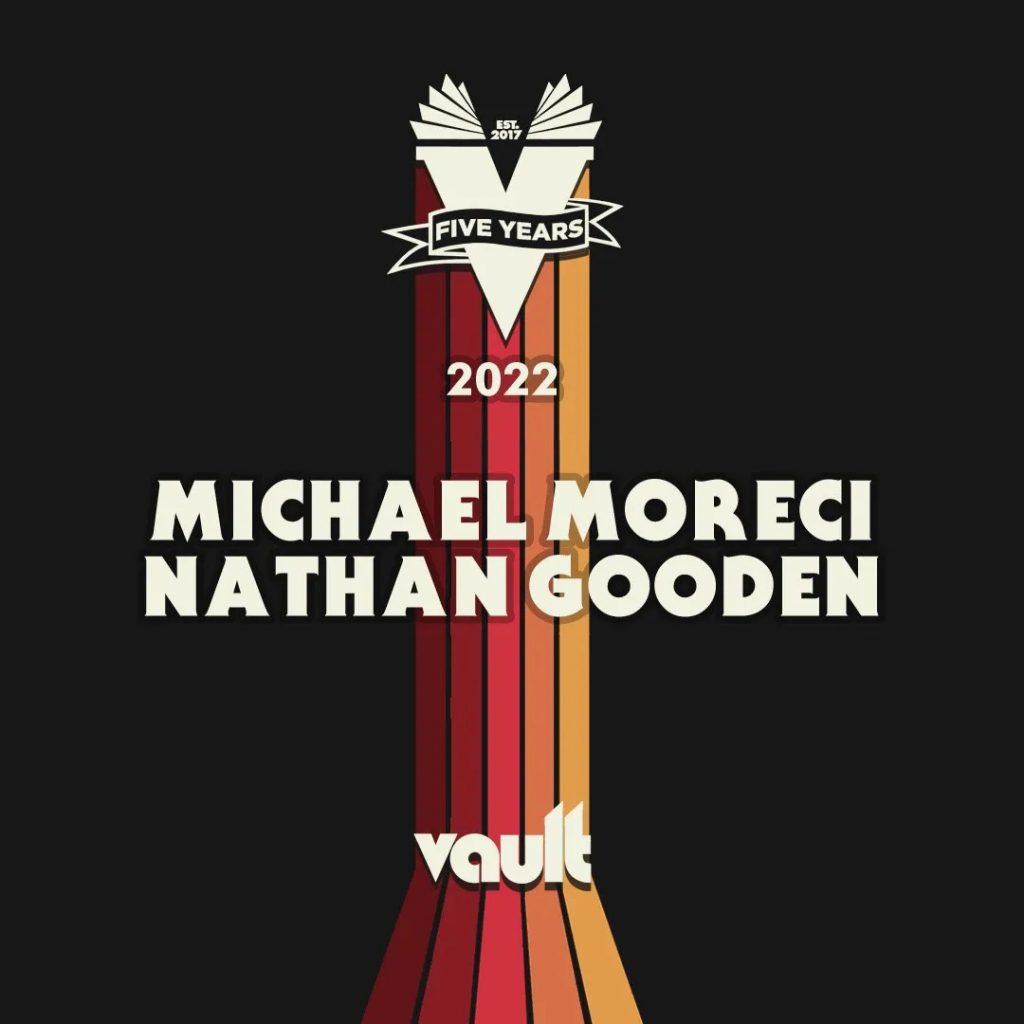On Panel: David Dissanayake, Liana Kangas, and Jazzlyn Stone on Marketing Comics and Creators
On Panel is a monthly, text-only sister series to Off Panel, my weekly comics interview podcast, in which each interview features two or more guests as I attempt to simulate the idea of a panel conversation from a conversation. By that I mean it’s a moderator – myself – guiding a free-flowing conversation between multiple panelists about a subject that unites them. It’s meant to be less of a traditional interview and more of a back-and-forth between myself and the guests or the guests themselves, as we talk about a central premise while discussing connected ideas in the process.
In the latest edition of On Panel, we’re taking a long, hard look at the world of comics marketing, an area of comics I’d describe as one of the most misunderstood, as well as one that’s arguably a weakness for the industry. It’s a tough one to judge, though. It’s incredibly multi-faceted, touching on a bevy of markets – like the direct and book markets, digital, crowdfunding, and beyond – while existing across a wide range of times, as there are always crucial points to promote a comic, whether it’s the announcement, opening of initial orders, or final order cutoff (or FOC). Pair that with shockingly low promotional budgets, and you have the recipe for a tough gig, at times. Given its complexity and the murkiness of the subject, it felt like an ideal topic to explore in this type of setting.
To do that, I’m joined by a trio of guests who provide unique expertise on the subject, with this each offering a look at that space from specific angles. Again, it’s a lot more varied than most give it credit for, even in where the marketers themselves are coming from. The three guests in this chat are: David Dissanayake, Vault Comics’ Director of Publicity & Direct Market Sales; Liana Kangas, a writer/artist who doubles as one of the best creators in the business at marketing themselves and their work; and Jazzlyn Stone, a freelance marketer who works with creators and publishers alike. That group recently joined me on Zoom to chat about the nature of comics marketing, having a creator focus versus a comic one, what elements affect your approach, how differently you need to market your comic depending on the market, genre, creators involved, and other variables, what works in the space, and much more.
It was an extremely enjoyable chat with three fantastic folks, and one that has been edited for length and clarity.
I wanted to chat with the three of you because, A) I think you’re all very good at marketing and promotion in your own roles, and B) I also think marketing is picked on a lot as a struggle for comics when I’m not sure a lot of people really have a great idea as to what it even really entails. It’s super broad. Depending on the channel you’re in and the type of book you’re working on, it can be any number of things. So, Liana, I wanted to start with you as the person who isn’t specifically on the marketing side. What is comics marketing to you?
Liana Kangas: The ability to stop being so in your head about your own work that you push your product and build your community, using your exemplary retail skills that you have fostered over almost two decades so you look at yourself like a brand that you’re trying to sell and push, while believing in yourself, the product, and in connecting with the people who like your work.
Jazzlyn Stone: I think “marketing is believing in yourself” is a very sweet little pull quote that we should use somewhere. I think marketing is connecting fans with stories.
(Jazzlyn’s cat, Kiyoko, meows in the background)
Oh my God. I love the cat sound.
Liana: I agree.
Jazzlyn: She agrees.
Totally agrees. David, do you agree with that? And the cat?
David Dissanayake: Absolutely. I do agree with the cat.
I think marketing for a large part is about awareness, right? Connecting with readers like Jazzlyn said, and just making sure that people are aware of the work. From my position working at a publisher, we’re always trying to expand the reach that our books have. So, we’re trying to introduce readers to new creators, new books, and new artists. I think another part of it too, is just pushing beyond and introducing people to new things.
I wanted to bring up something from Vault. I loved Vault’s teasers for 2022, as they went an unusual route for comics in that they just had creator names. It didn’t even have the book on there. One just said Brenden Fletcher. That brings up something I wanted to talk about, which is promoting creators versus promoting the work. I feel the traditional approach in comics has been comics first because that is what’s being sold to retailers and readers, not the creators. David, do you feel that the emphasis has shifted in recent years where creators are starting to become a bigger part of the mix?
David: In the creator-owned independent space, creators generally come first, as they should. I do think when you’re considering Marvel in DC, that has also shifted a little bit. Previously the characters were front and center, the Avengers or Superman or whatever are sort of the flagship. But in the post Grant Morrison world, you see creators being more at the front and center. A good example of that was the way Marvel handled Jonathan Hickman coming on board the X-Men. There was that big ad that just said “Hickman” where he was front and center.
I do think that you look at somebody like Brubaker, he came on board at Marvel where he did the Winter Soldier and the Captain America run and a bunch of other stuff and then took that fanbase to creator-owed with Criminal and Fatale and the rest. And then his name with his collaborators became the big sell. It almost doesn’t matter what the book is. It’s the new Brubaker joint. People are going to buy it and people are going to read it. Brubaker and Morrison, they’re just superstars. It doesn’t really matter what they’re doing if they’re on a book, people are going to read it. Same thing with Hickman, same thing with Kelly Sue (DeConnick).
That was always at play in the independent space, as it should be, and Marvel and DC are now starting to do that because they’ve seen the success that creators have on their own. And they’re really trying to capitalize on that. It’s kind of been that way in the new Image era with Saga, Chew, etc. And Marvel and DC are really catching up to the fact that it’s actually the creators that sell their books.
Liana: It definitely boils down to brand loyalty. If you think about the fact that these creators were able to flip 10 years ago the fact that people don’t necessarily always pick up a Big Two comic anymore. And so, when they like one thing by one person, they’re going to go get all the other books, right?
You’re almost connecting with them personally in a way without connecting with them. But then there’s also that facet of if you have yourself marketed well online or on social media, creators have their own individuality or things that readers relate to, which ties into the brand loyalty.
Jazzlyn: The art world in general is shifting to being creator first. Look at TV. The Expanse’s writers has a Twitter account and that’s just all of them tweeting from it. And a lot of other TV shows are starting to pick this up. And I can’t remember another time that anybody cared who wrote their television.
Nobody cared who wrote The Brady Bunch. They were just people who clocked in, did their job and left, right? So, I think now publishers and anybody who’s buying stories are also looking into, “Okay, how many followers do you have? What kind of loyalty do you have? Are you going to bring your fanbase to us? Can you make a TikTok?” stuff like that. I think it’s a big part of why stories get picked up. Or, it needs to be a good story, but then also, “What can the creator do for us?”
I’m going to date myself here, but I remember back in the MySpace days when I was really into pop punk and there were street teams…I joined MySpace so I could become a part of the My Chemical Romance street team. And when I think of your work Liana, I think of you having these hardcore fans that will buy anything you do. But it feels to me that a big part of marketing to today is activating those fans, so there’s this street team-like word of mouth that spreads.
Liana: I walked into a shop two weeks ago and somebody was wearing my shirt and I was, “Oh, hi!” It’s such a good feeling. And for someone to feel comfortable to show that to you, to be like, “I’m excited about this product that you made,” that to me is such a great way for me to connect to whoever’s reading my work and for whoever’s enjoying what I’m putting out.
And that’s a large part of why I keep doing what I do. Without a reader and fanbase, what is there? They are vital assets to sharing my work and sharing it with their friends, family, or whomever. The stories I get of people wearing my shirts and their daughter was like, “I want to borrow that shirt,” or whatever…it resonates. Resonating is super powerful.
Jazzlyn: People are looking for groups to belong to. With social media, it’s easy to feel alone and singular. I think that’s part of the reason why Funko Pops are so big. You can just put that on your desk at work and then people are like, “Oh my God, did you see the latest Daredevil?”
I don’t have Funko Pops, but I respect what they’re doing. It’s just a really quick, achievable way to flag your fandom. And belonging to a group is something that most humans want, so if you really love what Liana is drawing and you really love the vibe that they put into all of their work, regardless of what it is, if you really like that community that she’s building and then you see somebody else wearing one of their shirts out on the street, you already have a lot in common.
You’re both excited to meet other nerds. You both have an affinity for lemons. Stuff like that. I think it’s just a quick way to be like, “We could be friends.” And then it’s a similar way to when you’re in kindergarten and you’re like, “Do you want to be friends?” It’s just that quick connection.
Liana: That made me so happy.
I love that idea that there are people out there connecting over loving lemons because of Liana. Is that a thing? Did I not know part of your brand?
Liana: It was an inside joke I tweeted about. It was when I was approached for the first licensed thing I worked on, and I was holding a lemon when I received the email. I didn’t know how to react. I was holding my phone in my hand reading it, and I just smashed the lemon on the ground as a reaction. So people say “smash lemons” on my Patreon.
They all came up with it. I didn’t come up with it. I didn’t coin any of this. But it’s a way to share your excitement, like, “Go get this!” “Smash lemons today!” or whatever. But it became this weird thread where a whole bunch of people responded. Alison Sampson, was like, “How can you smash a lemon by throwing it down? Are you super strong?” Emily Pearson was like, “Liana that lemon had a wife and kids. Why would you do that?”
And it just became this unrealistic Twitter thread where I realized, “I guess this is my brand now.” It just weirdly, organically turned into that, that accidental brand awareness.

You can’t really control what people connect with. I think that’s part of it. I have this long running idea that everything is becoming sports, and when I think of what you both were talking about, I think of the movie Major League. They have all these montages in it where everybody’s wearing these Cleveland shirts and when they see those shorts, they just point at each other and get happy. It’s this instantaneous connection.
Back in the day, I think comic fandom was a bit more isolationist. Now it feels there’s more connection, both through the creators and comics. That’s part of the magic of marketing, right? The fact that it’s forging those bonds and it’s creating those fans to speak for you?
Liana: We have such a crazy expansive way to connect with each other, and with other groups within our industry because of the paradigm shifts with our lack of conventions and events. We’ve almost had to make come up with a bunch of new ways to do things, which I find very interesting.
Now, not everyone is going to be Liana. Some people are not going to be comfortable marketing themselves. I’ve talked to creators who, unless they’re required to do an interview, they won’t do it. I don’t blame them. It’s not something that they look forward to and it’s not something that they necessarily enjoy. Liana’s obviously in the higher tier of being visible and interacting with fans while promoting the work. Does your approach dramatically change depending on the person you’re working with? We’ll start with you, David.
David: Yes, it does. That’s the beauty of having a marketing and sales staff. It’s a benefit of working with a publisher like Vault. Some publishers don’t really help with that at all. It’s all on the creators. And as you said, some creators just hate doing it and that’s totally fair. Marketing and selling things is a skillset, that’s a profession that requires some connections and understanding of the marketplace. I totally understand that. As a creator, you, I imagine Liana, correct me if I’m wrong, you do it because you love it? 3
Because you want to draw, you want to write, you want to do all these things. Marketing and selling things is a whole different ballgame. And what we try to do at Vault is it make it so that it doesn’t matter if you don’t like to do those things. We’re here to do it for you, right? That’s what my job is. I talk to retailers, I talk to the press, we talk to bookstores, we have a social media. It’s a whole marketing machine.
We have a whole slew of tools that all creators have access to when they come with us, which we run for the creators. We’ll make sure your book is in the news. We’ll make sure that we’re talking about it on social media, make sure that retailers know about it. We’ll make sure that we set up the incentive covers and the sales and get the trade listed on Amazon and Barnes and Noble and all that kind of stuff. We do that for you. That’s kind of the whole point.
That way we can just let the creators create things. That said, there is a small caveat there where if a creator is good at marketing on their own, that’s an added bonus. Creators should also do that too. Vault can do all this for you, but we don’t have that direct access to your fans that you do. There is nobody better at communicating your work to your fans than you. So, if you are good at that, then do it. We’ll support you. But there’s nobody better than you.
Jazzlyn: I think a big part of my job is saying, “Okay, you have to post about this.” You could make a book and then just put it on a table and hope people read it. But it’s unlikely that they’re going to be able to. You could make a book and give it to your publisher and be like, “Alright, godspeed, market it for me.” But audiences nowadays really love interviews with the creators, hearing behind the scenes anecdotes, seeing process images and videos, getting into the creation of the products, if they love it. Or even just to get them interested in the story.
It is harder to sell a book when the creator doesn’t want to promote it. And that could be not posting about it on social media, or not wanting to do interviews, any of that. But I think the worst part is when they don’t want to do it, but then they’re like, “Okay, I’ll do it.” But then they feel weird promoting themselves, so they’ll make fun of themselves or the story when they promote it. Like, they’ll belittle both. Just don’t post about it at that point! You can’t make somebody buy your book if you’re like, “I hate my book, but buy it, I guess.” No, just don’t post about it. I would rather you just not say anything. It makes it way harder to market.
My heart goes out to people who just want to create and not do the song and dance of publicity. But I think that’s something that you talk about with your publisher’s marketing team. I’ve worked with creators who, for them, English is their second language, so they don’t want to do audio or video interviews. We’ll figure it out. They’ll do written interviews and then I’ll give them any feedback on “Oh, this is actually incorrect grammar,” or whatever. That makes them feel more confident when they put it out. I want to make sure that the creator, above all else, feels comfortable. But a close second is I want to sell books.
I’ve talked to creators who went with a different publisher because that publisher offered marketing services. They knew their strengths and they knew that they didn’t want to do. I think a lot of it comes down to knowing who you are and finding the right approach for yourself. But Liana, I want to get your perspective on this. You are very good at this. You also work closely with Jazzlyn as an independent marketer. Do you feel there are advantages to working closely with marketing, either on the independent or publisher side, to get the most out of what you’re doing?
Liana: Absolutely. And David (Dissanayake) was actually the first person that I worked with in comics who was part of a marketing team for any book. One of the things that I had realized was I enjoy the not art side of things as well. It’s actually a nice break for me to do constructive projects. That’s why social media is very easy for me. I like seeing things and ingesting them and emulating them and figuring out a way that would work for me as a comic artist versus me watching a food blogger advertise their stuff or whatever. What’s an interesting, unique way that I can do that as a comic creator. But then working on my first creator-owned book, David would say, “We’re at your disposal, what do you want to do?”
We can work on the variant covers together. We did a little mini tour where we drove around and hit up some shops and things like that. But the options are limitless. So, working with someone who does marketing, Jazzlyn and I met a couple years ago and seeing her work with multiple different companies and publishers made me realize, I would like to do that just for me as a creator anyway because I don’t only put out sequential books.
And so, what is going to be the best way for me to succeed as a creator, as someone who’s maybe going to create a brand or a book? And I want that book to be extremely successful and be an iconic thing. So how can we do that successfully? You have to hire expert help. I don’t know how to do that. So many amazing ideas for TRVE KVLT came out of Jazzlyn’s sweet baby genius brain because we would never think about doing a keychain for store management.
It’s nice because not only is marketing there for you, but it’s a collaborative effort. And so no matter how many ideas come out of marketing side, there’s the creator too. You have control of then IP, I assume. And so maybe they can elevate your ideas, or it’s just writer’s room style to me. And that’s one of the best parts about working on a book because you’re really growing the idea that it’s not just a book.
That’s what makes it special, because then all of a sudden you accidentally have cosplayers pretending that they’re employees of a burger chain.
Jazzlyn: I think with you in particular, that was really fun because I was laying the bricks for marketing from the jump. And I think back to the mask that he wears in the first issue. That originally was a different character. And I was like, “We could make that into merch we could actually sell later on, so you should simplify it so that it’s easier to source it and then cheaper, obviously.” There were little things like that I would do notes on so we could use it for merch.
When we were going back and forth on the uniform (of the employees of the burger chain), I was thinking about The Simpsons and how they designed all the characters to have memorable hair outlines so that when you were flipping through the channels, you’d be like, “Oh, The Simpsons.” I think about that kind of stuff with merch and interior art or character design, “What’s a shirt that they can wear and this really awesome panel that we could in theory have down the line?” Stuff like that. That was really fun.
Liana: One last thought. I do so many different things outside of comics…I do a lot of things because I’m passionate about them, but also to reach out to more readers, right? I do Twitch and I draw because I want more people to know that comics aren’t just for people who have read comics. There’s no gatekeeping for enjoying a story. So this helps me find new readers who don’t necessarily read comics on the daily, but also to connect with different properties, to do more covers for other IPs, and so I can grow as a creator.
subscribers only.
Learn more about what you get with a subscription





